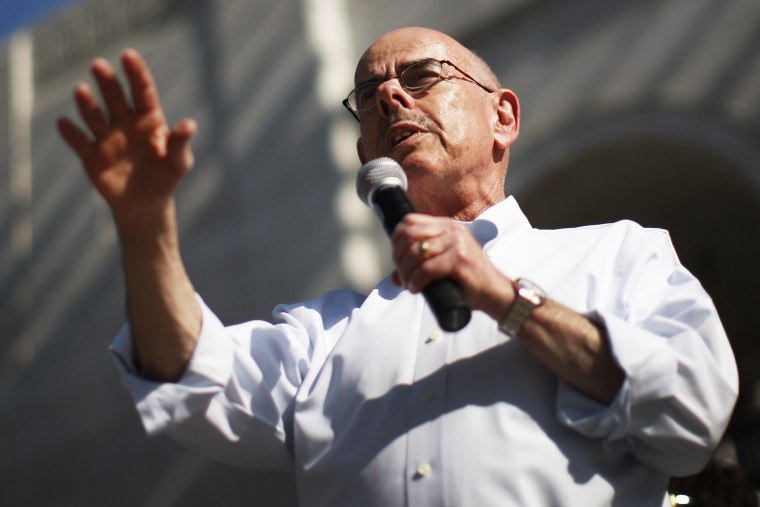UPDATED
The House of Representatives will lose one of its most aggressive watchdogs and environmental activists after this year.
California Democratic Rep. Henry Waxman will retire at the end of his term, ending a decades-long career on the Hill.
“The reason for my decision is simple. After 40 years in Congress, it’s time for someone else to have the chance to make his or her mark, ideally someone who is young enough to make the long-term commitment that’s required for real legislative success,” Waxman said in a statement. “I still feel youthful and energetic, but I recognize if I want to experience a life outside of Congress, I need to start soon. Public office is not the only way to serve, and I want to explore other avenues while I still can.”
President Obama praised Waxman in a statement, calling him "one of the most accomplished legislators of his or any era."
"Thanks to Henry's leadership, Americans breath cleaner air, drink cleaner water, eat safer food, purchase safer products, and, finally, have access to quality, affordable healthcare," said the president. "Today, he continues to advocate tirelessly on behalf of Los Angeles and California as he leads efforts to address a changing climate and make sure every American has the economic security that comes with health insurance."
Waxman represents a heavily Democratic district in Los Angeles County. Sandra Fluke, the Democratic activist whom Rush Limbaugh called a "slut" over her support for birth control, said she was mulling a bid to fill Waxman's seat.
"I'm flattered that I'm being discussed as a potential candidate, especially for Rep. Waxman's seat, considering his incredible legacy," Fluke said in a statement. "A number of folks I respect very deeply have reached out today and encouraged me to run. I am strongly considering running. I'll be making my decision soon."
In 1984, Waxman was one of the chief architects for the Hatch-Waxman Act, which ushered in the modern era of generic pharmaceuticals. The law sped up the FDA approval process for generic versions of brand-name drugs, vastly increasing their supply. A decade later, he played a leading role in House oversight of the tobacco industry, which faced much less regulation at the time than it does now.
In 1990, he helped to author significant revisions to the Clean Air Act which his office says "comprehensively addressed the problems of urban smog, toxic air pollution, acid rain, and the depletion of the stratospheric ozone layer."
During the Bush era, Waxman became known as one of the most influential Democrats in the House for investigations into the president’s administration. As chair of the House Oversight and Government Reform Committee, he aggressively pursued inquiries into the private military contractor Blackwater and the alleged politicization of the Justice Department. Under Waxman's leadership, the oversight committee also put together "Iraq on the Record," a collection of allegedly misleading statements from Bush administration officials in the run-up to the war with Iraq.
Around the time that President Obama took office, Waxman became chair of the House Energy and Commerce Committee, where he fought a quixotic battle to pass the American Clean Energy and Security Act, a plan to cut greenhouse gas emissions 20% by the year 2020.
He was also a major player in Obama-era health care policy, fighting to pass the Affordable Care Act and to expand the State Children's Health Insurance Program so that it would cover an additional four million children.
